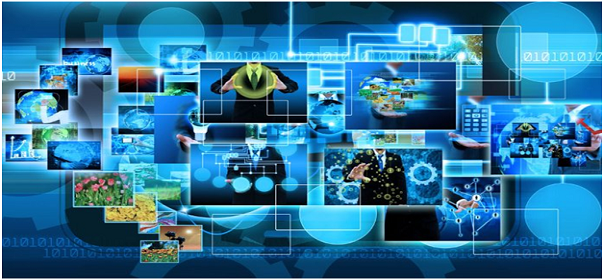Like the Industrial Revolution impacted manufacturing, digital transformation is now responsible for changing the industry. Consumer expectations and the advent of connected devices and platforms are driving the persistent digitization of the manufacturing. The industry continues to evolve in response to the challenge of ensuring the right products are delivered at the right price to the right person through a process of improved sophistication.
Digital Transformation Trends In Manufacturing
Robots
Traditionally, robots have been used to perform tedious, repetitive tasks on the assembly line. Today, however, robots are capable of mimicking more human traits such as dexterity and memory, which makes them more useful in industries like manufacturing. Highly trainable and collaborative, robots are also providing safer working environments for humans by switching places with them in dangerous or unsuitable situations.
Improved Speed And Efficiency
Robots and other automated technology are also integral in improving speed and efficiency, allowing manufacturing companies to “optimize production workflows, inventory, Work in Progress, and value chain decisions.” By integrating their IT systems, teams across the platform in various geographical locations can access relevant data, facilitating quicker, more collaborative and transparent communication. This connected technology provides real-time feedback to 900 employees, allowing them the information necessary to make quick decisions and act accordingly.
Data and analytics
It is predicted that by 2020, there will be 50 times the digital content compared to what exists today. Big data analysis becomes increasingly difficult and time-consuming as the digitized manufacturer struggles to manage, update, and analyze product and consumer information. As such, many businesses are opting to move content to the cloud as well as house on-site for a blended approach to their storing, managing, and processing needs. Information about things like supply, delivery, customer support used to be difficult to find or cumbersome to work with. In the digital era, that data is streamlined and collaboration-friendly, increasing accessibility for all stakeholders.
IoT And Industry 4.0
At the center of industrial transformation is IoT, accounting for more than $178 billion in 2016 and proving critical to providing companies with a competitive edge. The manufacturing industry is leading in the IoT because of the revolutionary ways this connected technology has streamlined and simplified various manufacturing processes. For instance, IoT can provide real-time feedback and alerts companies of defects or damaged goods. These simple yet critical implementations of IoT reduce cost and waste.
AI And Machine Learning
A machine’s ability to learn and adopt intelligent human behavior is not a new advancement. Today, these advanced algorithms are transforming the way the manufacturing industry collects information, performs skilled labor, and predicts consumer behavior. Smart factories with integrated IT systems provide relevant data to both sides of the supply chain more easily, increasing production capacity by 20%. Quality is no longer sacrificed for efficiency, as machine learning algorithms determine which factors impact service and production quality. Sensors have replaced human hands, resulting in less wasted time and materials, as well as optimal accuracy and workflow. Digitizing the industry means lower cost of production, quicker turnarounds, and more efficiently meeting customer demand.

